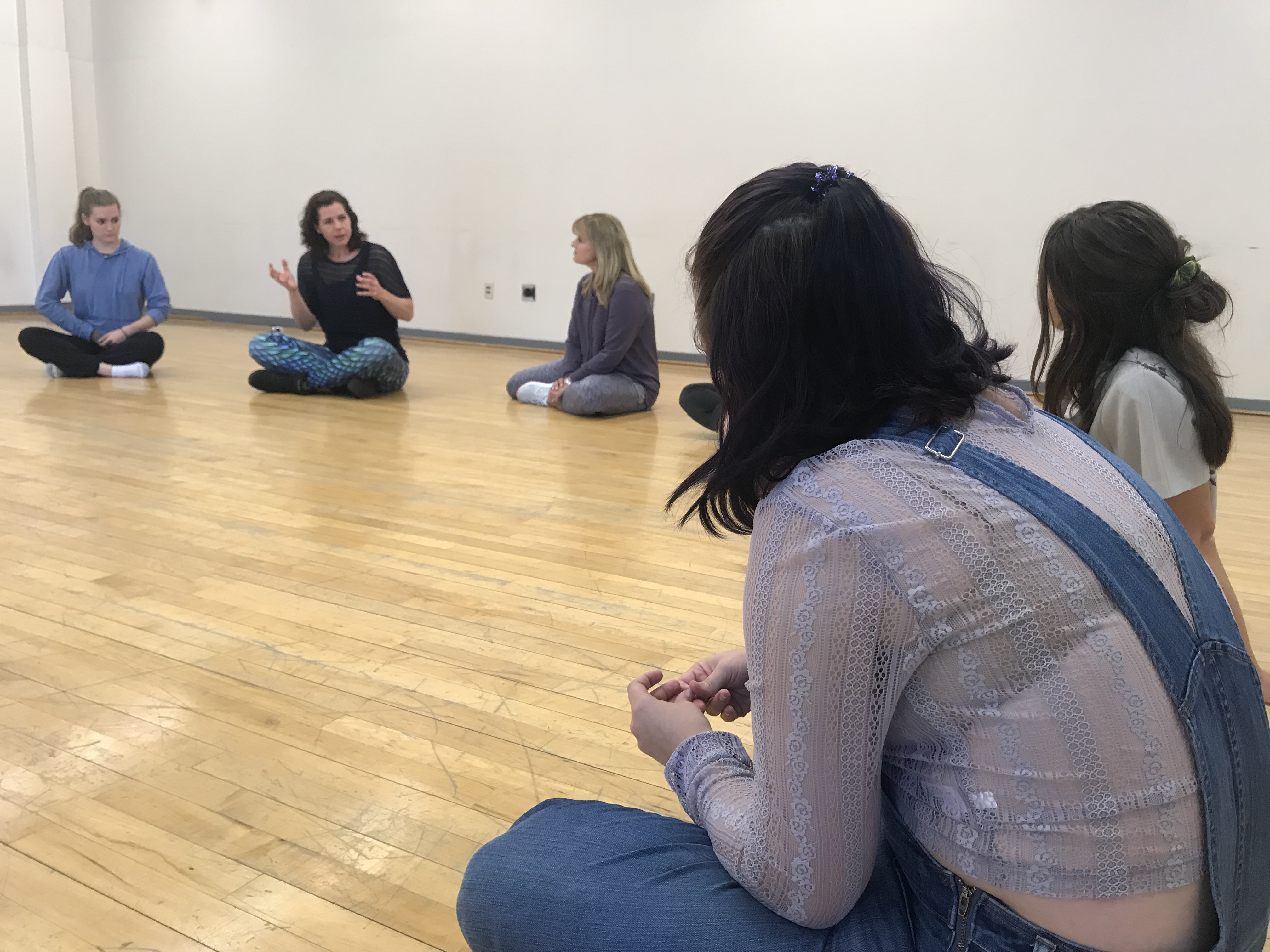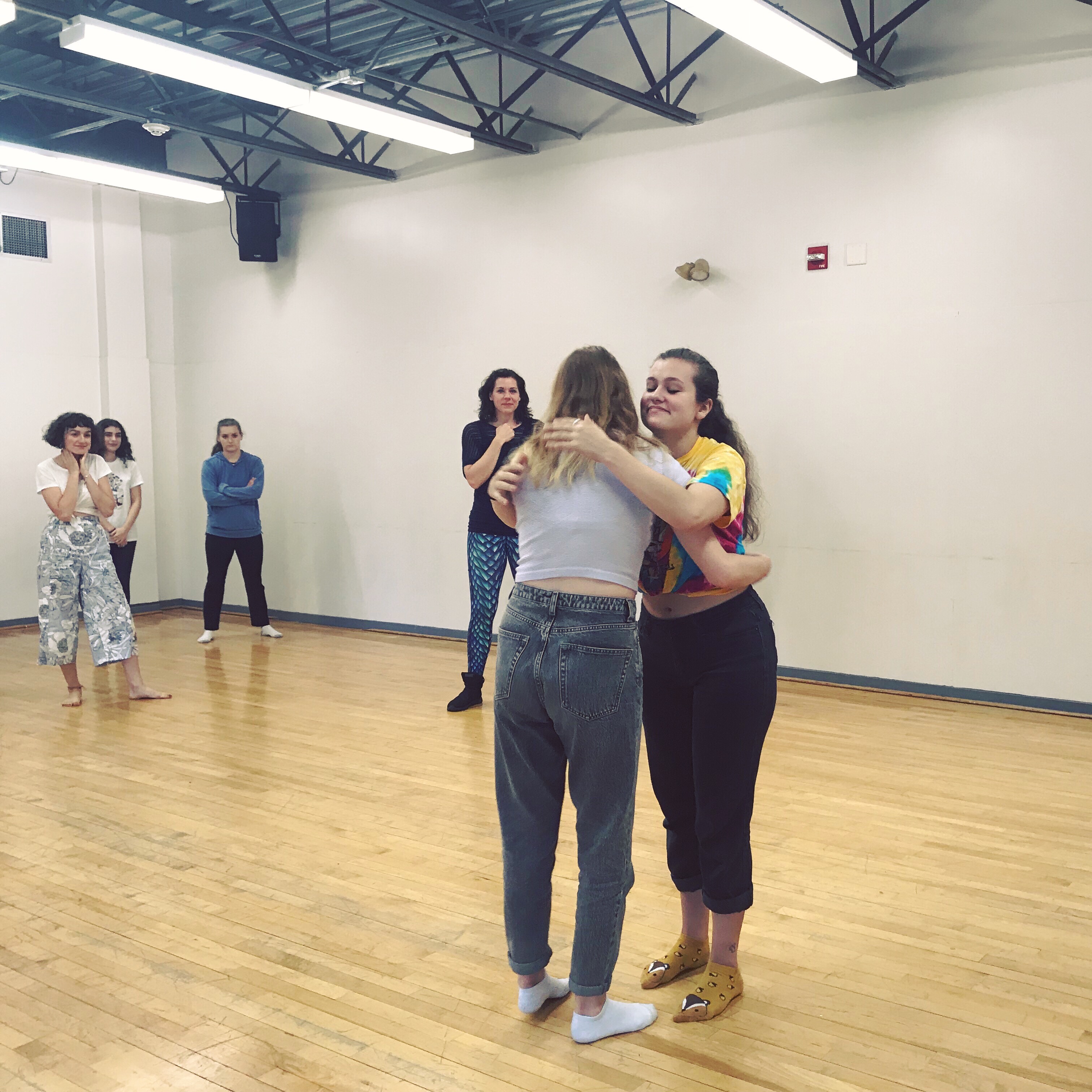A stage kiss: we’re all familiar. Two actors passionately embrace after having just confessed their love for each other, the audience swoons, the play ends happily ever after. What the audience does not see, however, is what happens in the rehearsal room to create that intimate moment. For decades, “what happens” in order to stage intimacy was different in each process, depending on the director and the actors working on the scene. Claire Warden is among those trying to change this.
A founder of Intimacy Directors International, Claire Warden visited the JKB on September 20th, and stayed the weekend to work with students and faculty alike. Over the course of three workshops, one for faculty and two for students, Warden illuminated the emerging field of intimacy direction and led activities to get participants to think about and understand the importance of the new form.
Intimacy direction is a rapidly growing field, focused on creating safe spaces in which theater artists can tell stories that include intimacy (ranging anywhere from a kiss onstage to simulated sexual acts) in a way that reflects the values of a post-Me-Too theater industry. Stemming from similar principles of stage combat, intimacy directors are charged with collaborating with actors and directors to choreograph moments onstage that to an audience appear realistic, while ensuring that the actors involved feel emotionally and physically safe. The Skidmore Theater Department prides itself on sharing these values; and so the JKB community welcomed Claire with open arms to learn how to be on the forefront of a practice that is becoming an industry standard.

Claire Warden talks about the importance of Intimacy Directions in a student workshop.
Walking into Studio B to take part in the workshop, students were warmly greeted by both Claire and Yvonne Perry, one of Skidmore Theater’s own faculty members, who also has background in intimacy direction and was a familiar face facilitating the workshop. The students in attendance varied largely in their capacities as theater makers, with actors, directors, stage managers, and designers all expressing their interest in intimacy direction. With 54 students signing up for the three-hour workshop, it was clear that the student body cared deeply about starting conversations surrounding stage intimacy.
Staging intimacy is steeped in ideas of consent, and Claire started the workshop with this in mind. She set the tone of the room by making it clear that all activities were optional, and that participants should only do what they felt comfortable with during the workshop. The activities themselves were focused on the fundamentals of safely staging intimacy, from asking for consent before physical touch to practicing checking in with oneself and advocating for oneself by saying “no.”

Sophie Pettit ’22 partakes in an intimacy exercise as Claire and other students look on.
The workshop was very well received by students. Becca Schilsky ’20 exclaimed, “I think [stage intimacy] is important because it enables everyone in the room to feel comfortable even if they are not an actor. As a stage manager, the workshop gave me more confidence in the future to proceed in processes that include intimacy and it was amazing to see my peers in other positions feel confident in their abilities too.” Ellie Strayer ’20, another participant, added that the workshop “was super helpful because now I feel comfortable as a director working with actors on content that previously made me feel scared.”
So where does the department go from here? Faculty are using the intimacy workshops as a jumping off point for their own policies regarding staging intimacy, with the end goal being the development of standardized practices for all JKB productions. With enthusiastic student support, the future of stage intimacy at Skidmore College is looking bright and consensual.
